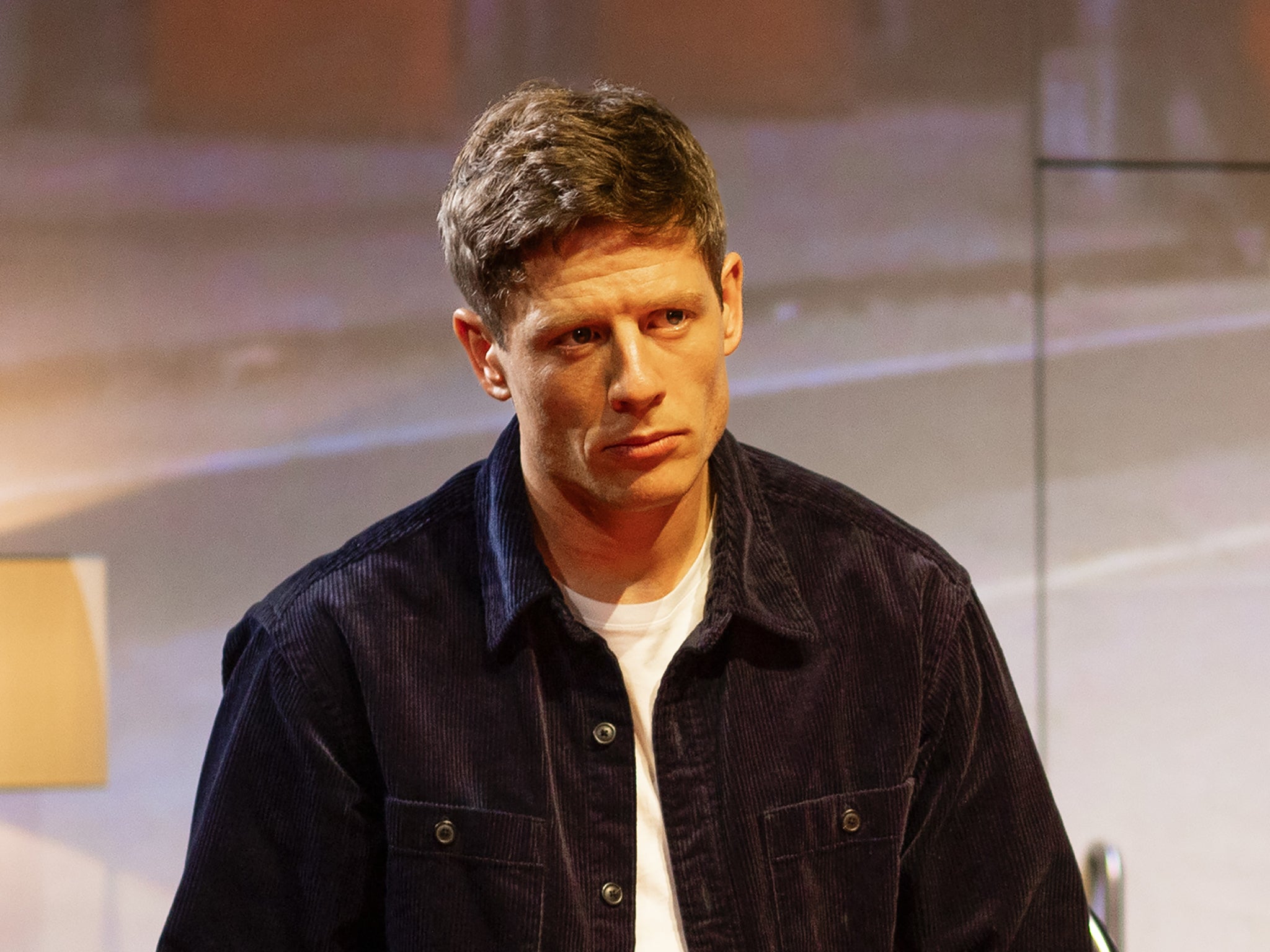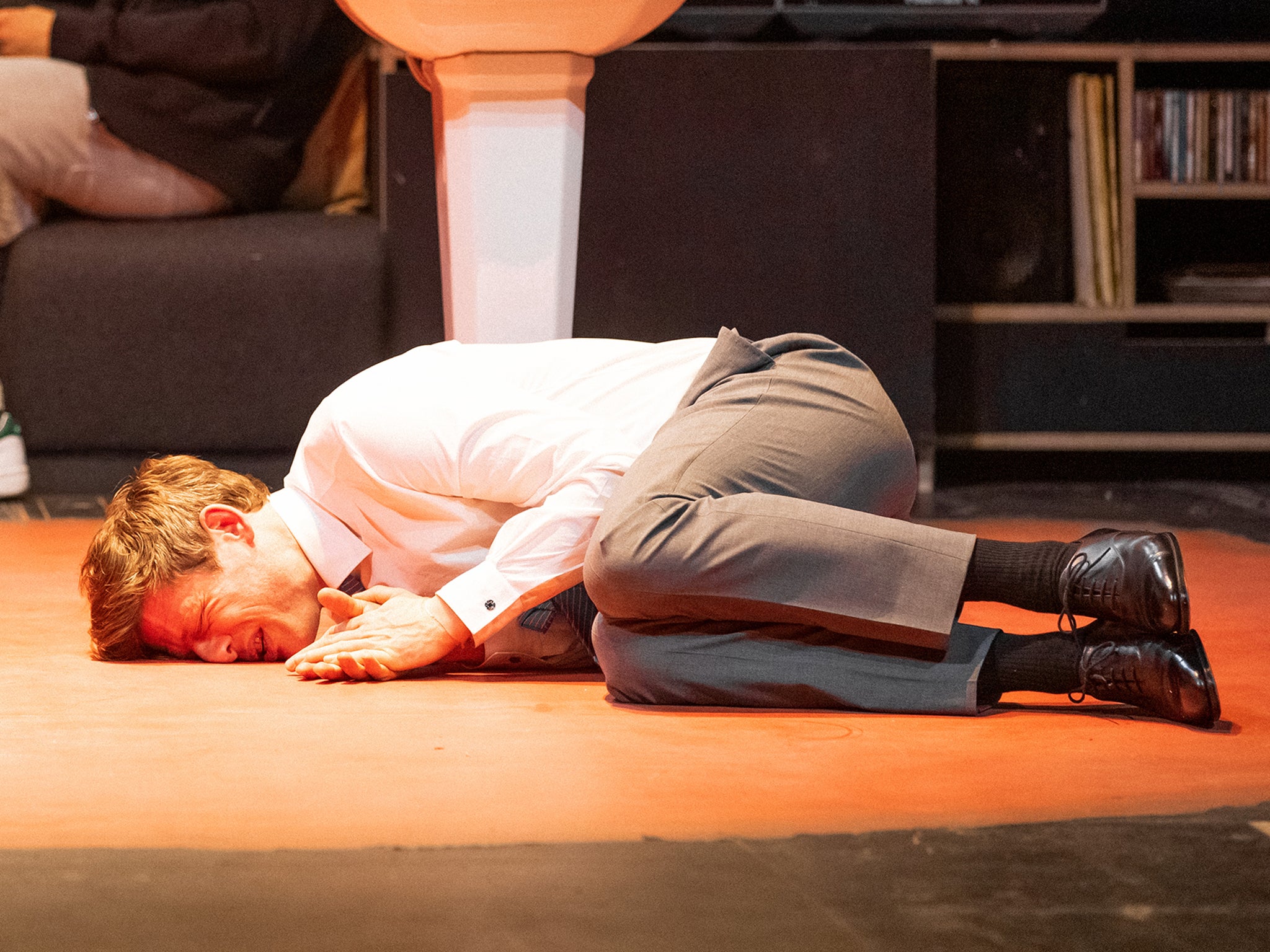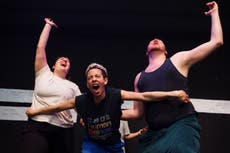James Norton’s nude scenes should have been respected – not violated by pervy photographers
Leaked photographs of the ‘Happy Valley’ star performing nude in ‘A Little Life’ has plunged the theatre world into crisis mode. It speaks to a grotesque violation of the unspoken contract between performer and audience member, writes Jessie Thompson


When pictures were recently leaked of James Norton naked on stage in A Little Life, I struggled to understand why. In the West End adaptation of Hanya Yanagihara’s cult novel, the actor plays Jude, a character who is repeatedly abused, raped and humiliated; the nudity is not intended to arouse. Was the aim to allow people to ogle the Happy Valley star? Or was it simply a provocative attempt to exert power over Norton in a vulnerable moment, a transgression of the rules of theatre etiquette? Previews had hardly begun before surreptitiously taken snaps of Norton sans clothes ended up online, published briefly on MailOnline before being taken down. The breach felt ironic, considering each night he performs the role of a person who has terrible things done to him. Yanagihara’s 700+ page novel, shortlisted for the Booker Prize in 2015, centres on the cycle of abuse Jude has found himself trapped in since childhood, leaving him so stained with shame that he keeps his past from his three best friends.
Naturally, a show with such challenging content demands courageous performances from its cast. But can such a project compel a name like Norton – or, frankly, any performer – to join its ranks if basic audience respect and safety can’t be guaranteed? It’s like that saying, “this is why we can’t have nice things”. Whether your definition of a “nice thing” is a staging of an intense literary novel or simply Norton in the nuddy, the taking of these pictures puts both in peril.
Not only do the pictures represent a violation of the unspoken contract that exists in the theatre – plays are magic because they are ephemeral events, shared fleetingly between the people in the room – but a violation of Norton himself. Following the triumphant conclusion of Happy Valley, when Norton sent the villain who made his name, Tommy Lee Royce, literally up in flames, the actor has eschewed the frequent Bond rumours that have followed him around in order to make a risky, avant-garde piece of theatre. A Little Life – and particularly the decision to play Jude – is a bold, brave choice for a star who could have chosen projects where he phoned it in and banked on his chiselled cheekbones. That his performance could be mined by a creep on a balcony for sexy content tarnishes those choices.
In a recent interview, Norton outlined how vulnerable he is in the part. He described the on-stage nudity as “massively exposing”, and one scene as “shaming”. “I lie on the floor naked being kicked and spat on – and it doesn’t get much more degrading than that… It’s really embarrassing and horrible,” he told The Telegraph. Talking to The Observer, he said that he’d discussed his worries about some of the more challenging scenes with his therapist. “I’ve talked to him about the play a lot, about why I’m worried about certain things: the sexual violence, the nudity. Like, ‘Why am I nervous about that? Why am I embarrassed by that?’ And he’s like, ‘Of course you should be!’”
Some might suggest that Norton cannot complain about the pictures, given he has chosen to bare all on stage. But this would be a victim-blaming argument that misunderstands the context of the nudity as part of his performance. Norton is not naked all day, every day, whenever you want him to be; he is naked on stage, at specific moments, in a stark, distressing story.
Undoubtedly, the production has done everything it can to ensure Norton and his fellow performers are protected. Norton recently told the BBC that there were “amazing safeguards” in place for their protection, such as a psychotherapist and intimacy coordinators. But the pictures have caused a debate that’s unsettled the whole industry, with drastic solutions being proposed that span from locking audience members’ phones in boxes to banning devices from buildings entirely. The issue is, depressingly, not new. In 2019, actor Audra McDonald called out a Broadway audience member who photographed her nude during a performance of the play Frankie and Johnny, writing: “To whoever it was in the audience that took a flash photo during our nude scene today: not cool. Not cool at all.” And last year, again in New York, leaked video footage of Jesse Williams naked on stage in Take Me Out – where a no-phone policy had already been implemented – saw the theatre install infrared technology to monitor the audience for rule-breaking camera usage.
In London, other productions have put in place measures to prevent sneaky photography. At Punchdrunk’s immersive show The Burnt City, audience members place phones in sealed bags, while at Cabaret, stickers are placed over camera lenses by ushers. These measures are intended just as much to preserve the show’s surprises from spilling out, as they are to preserve the privacy of those on stage.

You’d imagine, though, that most audience members would be keen to respect performers and their boundaries. In many ways, the incident with Norton feels almost old school in its flagrancy. It reminded me of the now infamous review written about Nicole Kidman’s performance in The Blue Room at the Donmar Warehouse in 1998, which critic Charles Spencer described as “pure theatrical Viagra”. More shocking than the fact that Kidman would think a David Hare play worth stripping off for is the language of the review. Forget Kidman’s privacy; I feel like I’m invading Spencer’s reading how the actor would “haunt [his] fantasies for months”.
It’s impossible to believe anyone now would ever write about Norton in such a way – but the pictures amount to the same kind of crude objectification. “There’s still a block when it comes to male nudity, about the penis, and what it looks like, and its size and its shape. We’re scared of the penis,” Norton said about the scenes, before the images were published. Unfortunately, not as scared as he may have thought; it’s actually horny pervs with camera phones he should fear instead.
Join our commenting forum
Join thought-provoking conversations, follow other Independent readers and see their replies
Comments


Bookmark popover
Removed from bookmarks